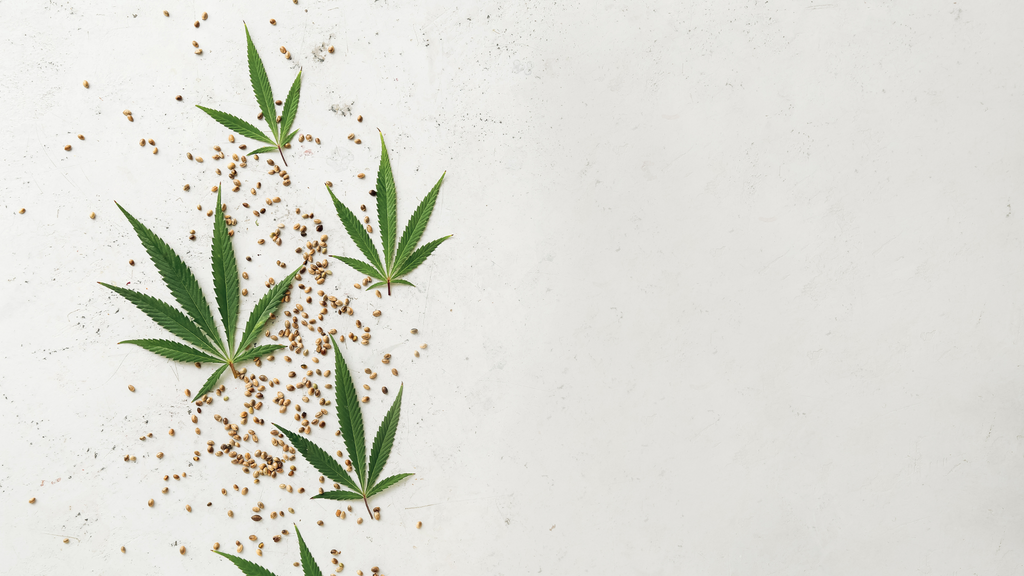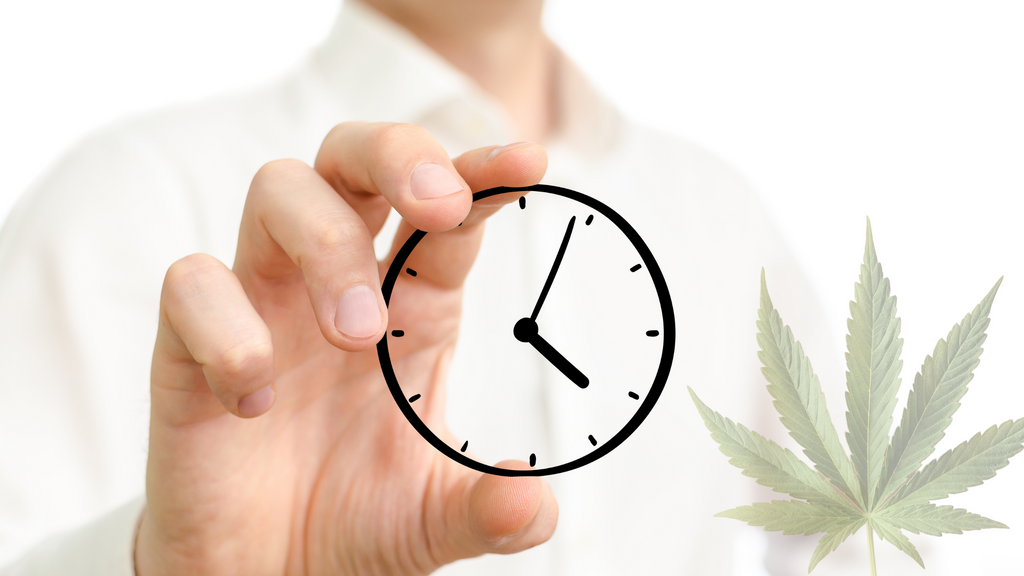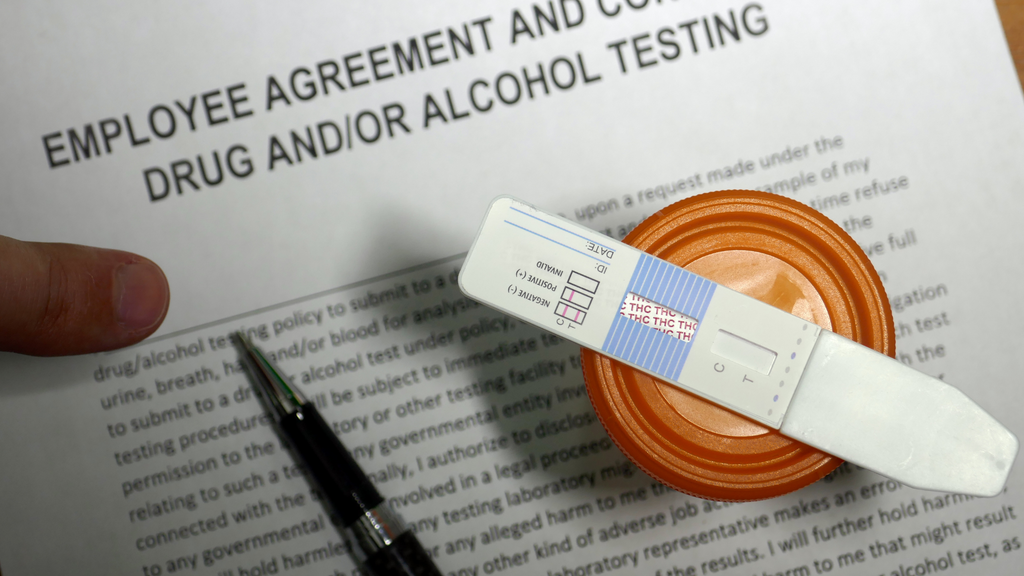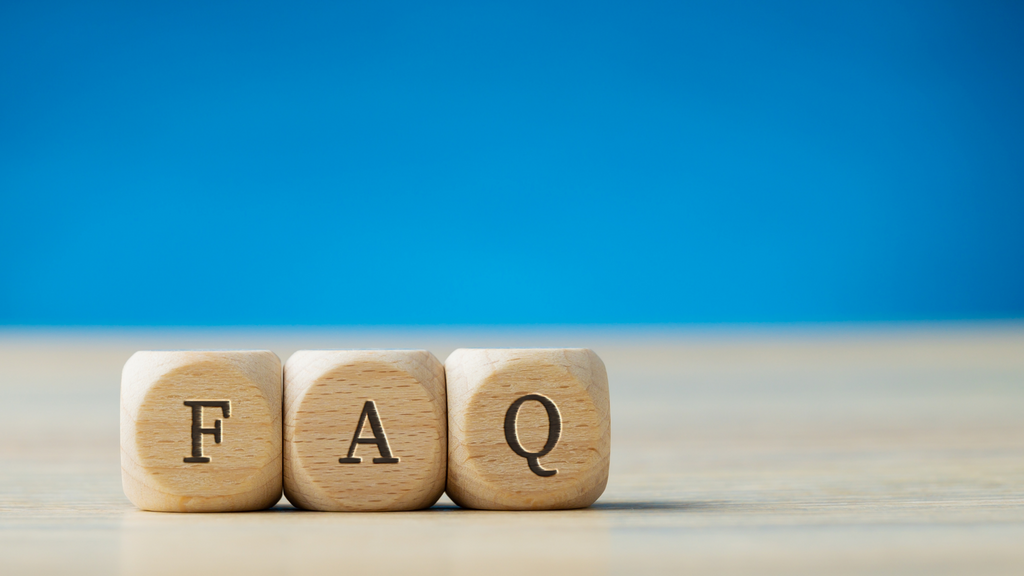Diving into the world of cannabis, especially the parts that deal with THC and THCA can get a bit tricky and even confusing.
But whether you're just curious, a seasoned pro, or maybe sweating over an upcoming drug test, getting the lowdown on how these components work in your body is pretty important. This guide is here to unpack the science stuff, break down how cannabis shows up (or doesn't) in drug tests, and even touch on your body's natural clean-up processes.
So, stick around! You're about to get clued in on what's happening inside your body with each puff or nibble, minus the heavy jargon. Who knows, it might just change how you see your next session.

What is THCA?
THCA, found in abundance in the marijuana plant, stands as a precursor to the psychoactive THC, that exists in freshly harvested cannabis. Surprisingly to many, THCA is non-psychoactive, meaning it doesn't produce the high associated with traditional Delta 9 THC.
This distinction has spurred interest among those who are searching for the possible benefits without certain psychoactive effects. However, when THCA undergoes decarboxylation, a process that usually occurs through heating or aging, it converts into psychoactive Delta 9 THC. This means that regardless of your psychoactive preference, THCA could be the answer for you. Just be aware that things change based on consumption method.
As you dive into the world of cannabis products, you might find terms like THCA diamonds and THCA disposables. These are forms of THCA extracted to maintain their non-psychoactive status, often consumed by individuals keen on the potential therapeutic benefits without the traditional cannabis high.
THCA Effects
While research is ongoing, THCA is believed to offer a variety of possible benefits similar to that of Delta 9 THC. These potential benefits are what make THCA a point of interest for many. It's also thought to have anti-inflammatory properties, which could be beneficial if you're dealing with conditions that cause inflammation.
Additionally, unlike psychoactive Delta 9 THC, some forms of THCA consumption don't lead to euphoric effects, making it an option worth considering even if you're seeking the benefits of cannabis without the high.
Moreover, the non-psychoactive nature of THCA means you can consume these cannabis products in select ways without the worry of intoxication, a crucial factor if you need to maintain certain cognitive functions for your daily routine. This is one of many aspects that has fueled a growing interest in THCA among cannabis users who might be looking for alternatives to traditional THC products.
THCA vs THC
The difference between THCA and THC is often confused by many. THCA is a non-psychoactive compound found in the raw cannabis plant, meaning it won't get you high. On the other hand, THC, often detected in many drug tests, is the main psychoactive compound in cannabis that delivers the high. When THCA is heated, it converts to THC, which is responsible for the psychoactive effects. This conversion happens through a process called decarboxylation, usually when you smoke or cook raw cannabis products.
If you're using hemp-derived THC products for their potential health benefits, understanding the distinction between consuming THCA products and THC is crucial. Opting for products with THCA could be more aligned with your goals, especially if you're trying to avoid the 'high' associated with THC.
This knowledge is also vital in understanding how various THC products might affect drug test results, as standard drug tests are designed to identify THC metabolites.

How Long Does THCA Stay in Your System?
When you're trying to answer the question, "How long does THCA stay in your system?", it's important to consider various factors. Unlike THC, there's limited information on how long THCA stays in your system, as most drug tests screen for THC, not THCA.
However, various factors like metabolism, body fat, and usage frequency can influence this duration. It's believed that THCA can linger in your system for a few hours to several days depending on these factors. Since THCA converts to THC when decarboxylated, consuming THCA-rich products might lead to the presence of THC cannabis metabolites in your system if this process has occurred.
THCA doesn't remain in the system as long as THC since it's not psychoactive and is processed differently by your body. However, if you're facing a drug test, it's important to remember that consuming THCA, can affect the test results. Understanding your body and how it interacts with different cannabinoids can help you minimize this risk. Remember, even if you're consuming non-psychoactive THCA, heating it converts it to THC, which can stay in your system much longer.
How long does THCA stay in your Urine?
The presence of cannabinoids like THCA in urinalysis tests is a grey area. Traditional urine drug tests are calibrated to detect THC metabolites, not to detect THCA itself. However, cannabis detection methods are evolving, and some advanced tests might detect other cannabinoids causing you to test positive.
It's understood that THCA itself doesn't stay in your urine for long, especially when compared to THC metabolites. However, the duration can be influenced by how frequently you consume THCA and your body's metabolism rate.
If you regularly use THCA tinctures or smoke THCA prerolls, it's worth noting that any conversion to THC through decarboxylation could lead to detectable THC metabolites in your urine. This is important if you're facing routine drug screening to avoid any cannabis consumption.
How long does THCA stay in your Blood?
When it comes to blood tests, the detection windows for THCA can be relatively short, making blood tests more suited for detecting recent drug use.
Unlike psychoactive THC, which can be detected for an extended period depending on usage habits, THCA is less likely to remain in your bloodstream for long durations. Blood tests, less common than urine tests for drug screening, are generally used to detect recent drug use. If you've been using a THCA product, it's less likely it will show up in a blood test, particularly if it's been several hours since consumption.
However, be aware that methods for detecting THC are more advanced and more frequently employed in blood tests than those for THCA. If THCA in your system has been converted into THC, either through heating or inside your body, it's possible for blood testing to detect this.
How long does THCA stay in your Saliva?
Saliva tests are also known for their ability to detect recent drug use, often within a few hours of consumption. THCA's presence in saliva is typically transient, similar to its behavior in blood. If you're using THCA products, they might not be detectable in a saliva test for a long period. However, if the THCA has been converted into THC, the duration it can be detected extends significantly, as THC tends to linger longer in saliva, especially with frequent cannabis use.
As with other testing methods, saliva tests primarily focus on THC detection. If you're concerned about THCA showing up in your saliva, it's important to consider your consumption method. For example, if you're smoking THCA prerolls or using THCA vapes, the heat involved in the process could cause the THCA to convert to THC, which could then be detectable in a saliva test.
How long does THCA stay in your Hair?
Hair tests are notorious for their ability to detect substances long after use, given that drug metabolites are deposited from the bloodstream into the hair follicles.
Again, these tests are primarily designed to detect the metabolites of THC, not THCA. While the science is less clear on the detection of THCA in hair, the consensus is that it's unlikely to be detectable for as long as THC, which can show up in hair tests for up to 90 days or more after use.
Just like all the other previously mentioned drug screening types above, any THCA that has been converted to THC through decarboxylation might be detected.
If you're using THCA products or any other hemp derived THC products and are subject to a hair test, be cautious about the methods of consumption, as any process that converts THCA to THC could result in a positive test result. This is especially pertinent given the long detection windows of hair tests.

Does THCA Show Up on a Drug Test?
Standard drug tests, including urine drug screens and blood tests, typically don't target THCA; instead, they look for THC or its main metabolite, THC-COOH. This is an extremely important distinction to understand if you're using THCA and facing a drug test. Since THCA isn't psychoactive, most drug tests aren't designed to detect it. However, drug testing technology is evolving, and there could be advancements in the future that change this.
Despite the current focus on THC in drug tests, it's important to remember the potential for THCA to convert into THC, especially when exposed to heat. For example, if you're smoking THCA flower or using THCA in cooking, the heat involved can cause decarboxylation, converting THCA to THC, which is detectable in drug tests.
How does THCA cause a positive drug test?
In order to answer the question of "How long does THCA stay in your system?" let's take a closer look at what causes positive urine drug screens to begin with.
THCA itself doesn't usually trigger a positive drug test, as standard tests are designed to detect THC and its metabolites. Remember, it's actually the conversion, or the decarboxylation process, where THCA converts to THC upon heating or burning, that will cause you to unexpectedly test positive for a drug screening.
If you consume THCA and this conversion occurs, the resultant THC could potentially be detected in a drug test, causing you to fail a drug test and test positive for THC. This scenario is particularly likely if you're smoking or vaping THCA-rich products, as the heat involved directly initiates the conversion.
Additionally, some methods of extraction and consumption of THCA may lead to a mixture of cannabinoids that includes both THCA and THC. This is why understanding the composition of the products you're using is essential. If they contain THC, or if there's a chance that the THCA they contain could be converted to THC, you're at risk for a positive drug test.

How to Get Rid of THCA Metabolites
Eliminating THCA metabolites from your system is not exactly cut and dry, this is largely because the majority of drug tests screen for THC metabolites, not THCA itself.
Abstinence is the most straightforward approach, giving your body time to naturally process and eliminate these compounds. Keep in mind that fat cells store Delta 9 THC, so the duration can vary based on several factors, including your metabolism, body fat percentage, and frequency of cannabis use.
While there's no magic solution to instantly remove THC metabolites from your system, certain lifestyle changes can potentially expedite the process. Staying hydrated, engaging in regular physical activity, and maintaining a healthy diet can all support your body's natural detoxification processes. However, these methods require time and consistency and are more about supporting overall health than providing a quick fix for impending drug tests.
Here is a closer look at some of the key factors you can control to assist in the process of flushing THCA out of your system.
Abstaining
To effectively clear your system of cannabis compounds, including potential THC from THCA, stopping cannabis use is key. This is especially true for heavy cannabis users.
How long weed take to clear your system takes time. This time varies with your usage habits and metabolism, potentially spanning several weeks, especially for frequent users. This is crucial when facing a drug test, as converted THC can trigger a positive result. Your body needs time to naturally eliminate these substances, so patience is essential.
Stay Hydrated
While hydration is crucial for health, it doesn't directly expel THC metabolites since they're stored in fat cells. Drinking water aids in the gradual elimination of these metabolites through bodily fluids but won't provide immediate detoxification, especially for frequent users.
Overhydration can be harmful and result in diluted urine that may be suspect in drug tests. Essentially, increased water intake doesn't significantly quicken the removal of THC metabolites, with the process requiring time and moderation.
Physical Activity
Regular physical activity can influence the metabolism of THC in your body. Since THC is fat-soluble and stored in fat cells, or fatty tissues. Exercise that reduces fat stores may help release stored THC, allowing it to be metabolized and excreted.
However, this process takes time, and the effects can vary greatly between individuals based on factors like body composition, type of exercise, and frequency of cannabis use. It's not a quick fix, especially if you're facing an imminent drug test, as burning fat could temporarily increase THC levels in your bloodstream.
Most importantly, while exercise has many health benefits, initiating an intense exercise regimen shortly before a drug test with the hope of rapidly clearing any last THC metabolite may not have the desired outcome. In fact, it could potentially spike THC levels in your system, increasing the risk of a positive test. As such, physical activity is more about long-term management and less about immediate detoxification.
Healthy Diet
A healthy diet and regular exercise support your body's natural detox processes but won't instantly purge THC or its metabolites. High-fiber foods and antioxidants help cleanse the system, while exercise releases stored cannabis metabolites by burning fat.
However, their effectiveness depends on personal factors like metabolism and usage frequency, and they're not quick fixes for impending drug tests. These methods are long-term strategies for reducing the likelihood of positive test results over time.

Where to Buy THCA Products
THCA products are available in various forms, including tinctures, topicals, and raw cannabis flowers. These can be found at dispensaries where cannabis is legal for medicinal or recreational use. When shopping for THCA, it's crucial to source them from reputable retailers that provide lab-tested items.
THCA-infused products are gaining popularity at the moment. If you're interested in experiencing THCA, we suggest checking out the wide variety of THCA products for sale online from Everyday Delta.
Final Thoughts
THCA is a cannabinoid that has continued to gain attention. Its therapeutic possibilities are encouraging yet it does require further research. THCA itself doesn't induce psychoactive effects, but it transforms into THC upon heating.
Consequently, smoking THCA products can produce a high. It's also important to recognize that this might lead to a failed drug test. Therefore, it's advisable to consume THCA products with caution and responsibility.
Frequently Asked Questions about THCA

What Shows Up on a Drug Urine Test?
Urine drug tests generally screen for substances like THC-COOH, glucuronide, and THC. Yet, recent advancements in urine testing methods have enabled the detection of other cannabis compounds, possibly including THCA itself.
Is THCA Detectable in Urine Tests?
No, most standard urine tests primarily screen for THC or its main metabolite, THC-COOH, not THCA directly. Theoretically, consuming non-psychoactive THCA shouldn't cause a positive test result on most drug tests, as long as it doesn't convert into THC through decarboxylation. However, this conversion can occasionally happen, so caution and awareness are important, especially if regular drug testing is expected.
How sensitive are drug tests?
The ability of laboratory drug tests to detect substances can differ significantly. Urine drug tests, the most prevalent type, can identify THC metabolites in urine for as long as 45 days after use. Hair tests, known for their high sensitivity, have the capability to detect these metabolites for a period of up to 90 days."
What is considered a high THCA level?
"High" THCA levels are subjective, and influenced by consumption methods, personal tolerance, and the concentration of specific hemp products. Fresh cannabis often has substantial THCA, considered high versus its decarboxylated or aged counterparts. In drug tests, THC or its metabolites are standard measures, making THCA levels less pertinent.
How far back does a 10 panel urinalysis go?
A 10-panel urine test screens for substances like amphetamines, cocaine, opiates, and THC, among others. For THC, the detection period varies, it's about 10 days for occasional users, but can exceed 30 days for heavy users.
Is THCA Legal?
Yes, THCA derived from the hemp plant is considered federally legal based on the 2018 Farm Bill which states that hemp is considered hemp as long as the THC content does not exceed 0.3% Delta 9 THC on a dry weight basis.
*By using this website, you agree to and are subject to the following Legal Disclaimer, which is part of our Terms of Service. The information provided on this website does not and is not intended to constitute legal advice or reliable statements of the status of any laws.

